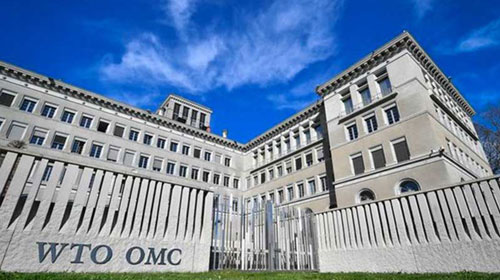The Indian government’s efforts to strengthen the arbitration process in India through the establishment of an expert committee led by T.K. Vishwanathan underscores the need to lend the system efficacy and efficiency. Improving the arbitration process here would enhance India’s global stature as a jurisdiction where justice is not denied because it is unreasonably delayed. Right now, glaring deficiencies exist that require amendments which envisage arbitration as a process that’s parallel to an over-burdened court system, instead of as a process supported by courts.
Timely dispute resolution would encourage private enterprise and investment. But this cannot be achieved simply by imposing statutory timelines, even if backed by penal consequences. It requires delineating the threshold and limitations of the role of courts both statutorily and structurally. For instance, lack of statutory clarity on jurisdiction has resulted in misuse of the system, especially (and surprisingly) where the government is involved as a party. Impeding and unnecessarily delaying the execution of arbitral awards has led to rampant forum-shopping within India. The tactics that Delhi Metro Rail Corporation (DMRC), a government entity, has employed to delay the execution of an arbitral award that favoured Delhi Airport Metro Express Pvt Ltd is a case in point. The unconscionability of this delay is best understood if one looks at the timeline. Arbitration was invoked in October 2013. It is August 2023 now and the award that was given in May 2017 is yet to be fully executed. Such tactics adversely affect the credibility of the arbitration process and also deter investors from India.
Courts appear to have contributed to the mess by engaging in exotic legal questions even while dealing with a final arbitral award rendered by technically qualified arbitrators. For example, the Delhi high court in Trichy Thanjavur Expressway vs National Highways Authority of India engaged in the legal question of whether the setting-aside of a part of an arbitral award would be construed as modification. These issues are best resolved using statutory amendments or by crafting appropriate regulations, or even by providing principle guidance for courts. When courts engage in such questions, it delays execution, often with an accumulation of interest. In the DMRC case, the post-award interest component alone, on account of the delay in executing the award, exceeds over ₹2,700 crore. When a government party acts in ways that delay the execution of an award, it is a burden on public finances, which the Vishwanathan committee should work to minimize.
The expert panel should ensure that proposed solutions do not exacerbate existing problems instead of resolving them. The presumably well-intended proposal of Niti Aayog to address delayed enforcement in the light of the government’s ‘Vivad Se Vishwas’ circular, wherein government entities are required to pay 75% of an arbitral award favouring the contractor (to cover delays) by using a bank guarantee, is a classic example of that. The proposal provides a perverse incentive to continue delays. The making of a three-fourths payment effectively signals to courts that they can engage without concern for timely resolution, even though that is a key objective. In case the court sets aside the award, the opposing parties may get embroiled in a fresh dispute under the Niti Aayog scheme, with one party seeking a refund even while the payee explores ways to secure the remaining 25% through further appeals.
The Vishwanathan committee should be cognizant of the fact that the process of arbitration is meant to be less dramatic than a court process. Minimal court intervention would ensue when there is clarity on jurisdiction, with a statutory responsibility assigned to courts to facilitate quick execution of arbitral awards. The panel should aim to place a higher legal burden to prevent successive appeals, create a clear standard of review to discharge burdens, and institute a robust misuse doctrine, with structural mechanisms to deter government parties that seemingly pay no attention to the financial implications of their actions.
The DMRC case should serve as a lesson to ensure that structural mechanisms (not necessarily statutory) are instituted to deal specifically with interest provisions. For instance, the Supreme Court in the case of UHL Power Company Ltd vs State of Himachal Pradesh granted arbitrators the power to grant compound interest, including post-award interest. In line with international conventions in other areas of law and treatises, offering model guidance on interest provisions could provide parties with the flexibility to stipulate interest in their contracts while maintaining a standard framework.
Establishing a competitive and sophisticated system of arbitration will attract foreign as well as domestic private investments, resulting in the induction of technologies that improve efficiency, which in turn can make the overall system robust.
Today, Indian companies prefer arbitration in foreign jurisdictions such as the UK or Singapore. Imagine arbitration in India becoming so well institutionalized that foreign companies find this a cost-effective and technically advanced jurisdiction for the resolution of disputes. This is an ambition that the Vishwanathan committee should make a priority.



